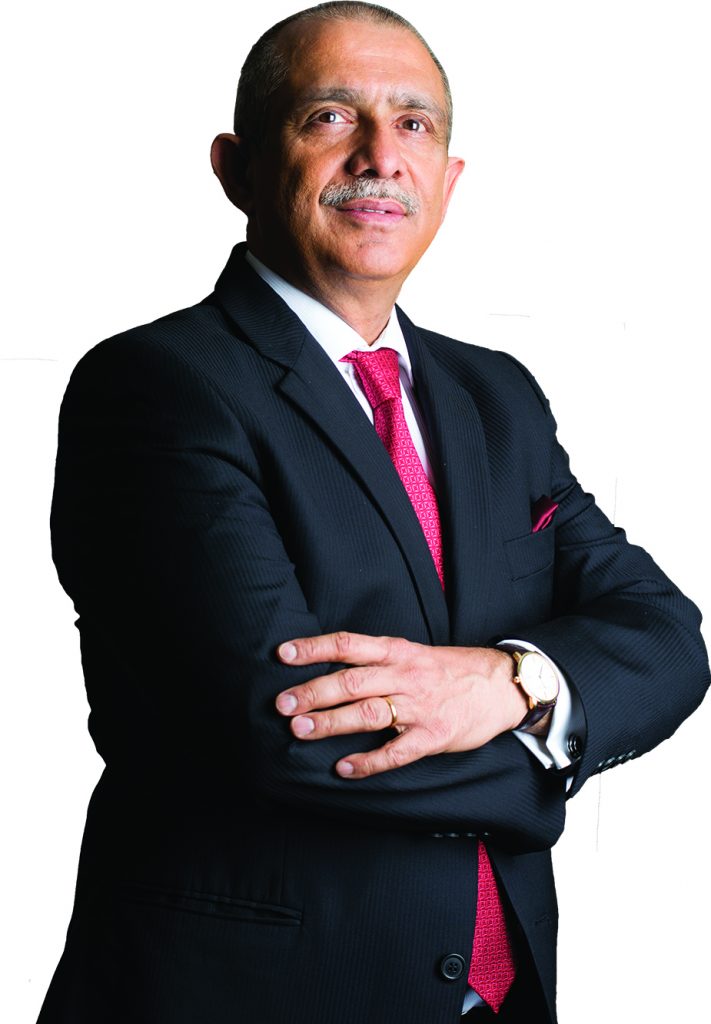Rakesh Wahi, founder of the Johannesburg-based ABN Group including CNBC Africa, FORBES AFRICA and this magazine you hold in your hands, has been a leader in media, IT, telecoms and education. Also based in Dubai as Chairman of CMA Investment Holdings, prior to moving to the UAE, Wahi served in the Indian Armed Forces for about nine years, and was awarded the Vishisht Seva Medal by the President of India in1985, for distinguished services to the country in peacetime.
Wahi has built companies in over 22 countries, employing a little over 1,000 people. It’s his vision to set up educational institutions in Africa; the first of which he launched in Ghana in 2013.
Here, Wahi tell us about his debut book, Be A Lion, which will be unveiled at the finale of the 2016 CNBC Africa All Africa Business Leaders Awards in Johannesburg on November 11.
A few words on the book…?
It’s about people and the impact they have had on me. I think this entire journey I have made is about how people have influenced me. First, on your way up, it’s your parents who are your greatest influencers as that’s where you get your identity from; and then, over a period of your lifetime, it’s the people who come into your life and make an impact, some positively, some otherwise. And that is the greatest experience you can talk about.
Loading...
Why the fascination for the lion?
Every human being is inspired by animals, be it rhinos, elephants or gorillas. For me, the fascination has always been the lion. It’s something that’s inherent and perhaps speaks about my character in many ways. A lot of the conversations in the book are extrapolated towards the king of the jungle, the human jungle.
Do you often find that business can draw lessons from the military?
Absolutely! You will find that a number of army officers have made great business leaders; the reason is that the core of any business is people, and the one thing the military teaches you is to look after these assets. And right from the day I joined the forces to when I left, the only thing ingrained in me was how to motivate people towards a common objective. Military officers know it’s important to look after their people, starting with basic things, such as making sure they got hot food, they wrote home, they went to pray… These are the softer things of life that business sometimes tends to forget. The army teaches you these core values. And that’s the inherent need in business. If somebody is working for you – even if it’s one person on the job – you have to be there with him.
While in the army, you once almost stared death in the face. What was that experience like?
It was a defining moment in my life. I was about 23. We were on a specialized task force in India’s western front. I was electrocuted and they couldn’t revive me quickly; I was clinically dead. And then my second-in-command saw my fingers move. I came to in 24 hours, and although they asked me to go home to rest, I returned to my troops in 72 hours.
But I realized at that young age that life is not something you take forgranted, therefore, whatever you want in this world, you have to set out to achieve it. At the end of the day, you are either there or not there; if you are not there, and if there are unfulfilled dreams, they will always be unfulfilled. You must always set out to do what comes to your heart.
Your advice to entrepreneurs in emerging markets…?
If there is one lesson you will learn in emerging markets, it’s patience. Always remember to look at business for the long-term, make sure you have ticked all the right boxes, do your homework – don’t take short-cuts. When you go into these difficult regulated industries, people will tell you ‘we can fix this and that’. I have never ever gone to Mr Fix-Its. There is no quick-fix solution for setting up sustainable businesses and the reason for that is there are a lot of variables and if you haven’t set your foundations strong, you open yourself up to retroactive actions that result in many issues including corruption. And people talk a lot about corruption in emerging markets. But the businesses that we have been in, for the last 26 years, we have never once had to pay anybody to do anything for us, and the reason is that we have taken our time setting them up and making sure our foundations are strong.
– Interviewed by Methil Renuka; Read more about Wahi in the November 2016 issue of FORBES AFRICA.
Loading...
